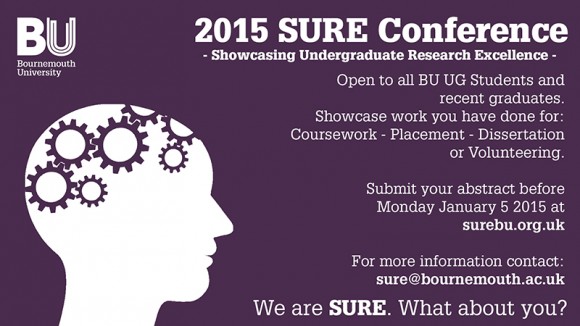The National Centre for Post-Qualifying Social Work (NCPQSW), based at Bournemouth University, held its first child protection conference, celebrating the good work done by social workers in the field.
The Child Protection in a time of Austerity conference took place at BU at the end of June and was attended by social workers, managers and directors from across the South of England.
The day-long conference featured eminent speakers from the field of social work and child protection and focused on issues including the role of supervision, critical reflection and reflective leadership.
There were also panel question and answer sessions and a showing of a film by sisters Zoe and Jenna Grove, who had been through the care system as children.
Professor Keith Brown, Director of the NCPQSW, said: “We’ve got a number of eminent speakers, looking at supervision, child protection and working with children and families.
“We just wanted to celebrate good social work practice.
“We hear so many comments in the media at the moment about problems in society, issues with children and children’s deaths, and we sometimes forget to reflect on all the really good practice that goes on and the way actually social workers make a real difference in our society.”
The NCPQSW provides education, training and continued professional development opportunities for social workers who have already qualified.
Speakers at the Child Protection conference included Siobhan Maclean, an independent trainer and consultant who works with the Independent Federation of Social Workers.
Siobhan, who talked about critically reflective practice in social work, said that the NSPQW had already gained a strong reputation nationwide.
“I think the National Centre’s really important. I’m from the West Midlands region, and even in the Midlands, people are very aware of the Centre and the importance of it.
“A lot of practitioners there look to the Centre for further development and publications, so it’s got a good reputation that goes a long way as a national centre.”
Other speakers included Gillian Ruch, a senior social work lecturer at the University of Southampton, and Nushra Mansuri, from the British Association of Social Workers.
Jane Wonnacott, Director of In-Trac Training and Consultancy, spoke about the need for effective supervision in social work.
She said: “Supervision is something that I feel is absolutely fundamental to good childcare practice and good social work practice generally, so it felt very important to come and be able to share some ideas.
“It’s very important I think to have the opportunity to be able to continue your professional development, but also the opportunity to do that outside your own work environment and have your ideas challenged.”
Alongside the talks, there were panel question and answer sessions and a showing of a film by sisters Zoe and Jenna Grove, who had been through the care system as children.
The conference also featured an interactive room, with presentations and stalls on social work research, literature and courses.
Professor Brown said that he hoped attendees would take a number of things away from the conference.
“I hope they will think it’s really good to be involved with the National Centre and take part in the events,” he said.
“I would like them to think and reflect on the great work they are doing in social work and think about maybe how they could work with us differently, work in a new partnership or come away and do some more work with us.”
You can find out more about the National Centre for Post-Qualifying Social Work at www.nspqsw.com.
 Proud of your research? Share your abstract to be part of BU’s SURE Conference 2015.
Proud of your research? Share your abstract to be part of BU’s SURE Conference 2015. Bournemouth University
Bournemouth University